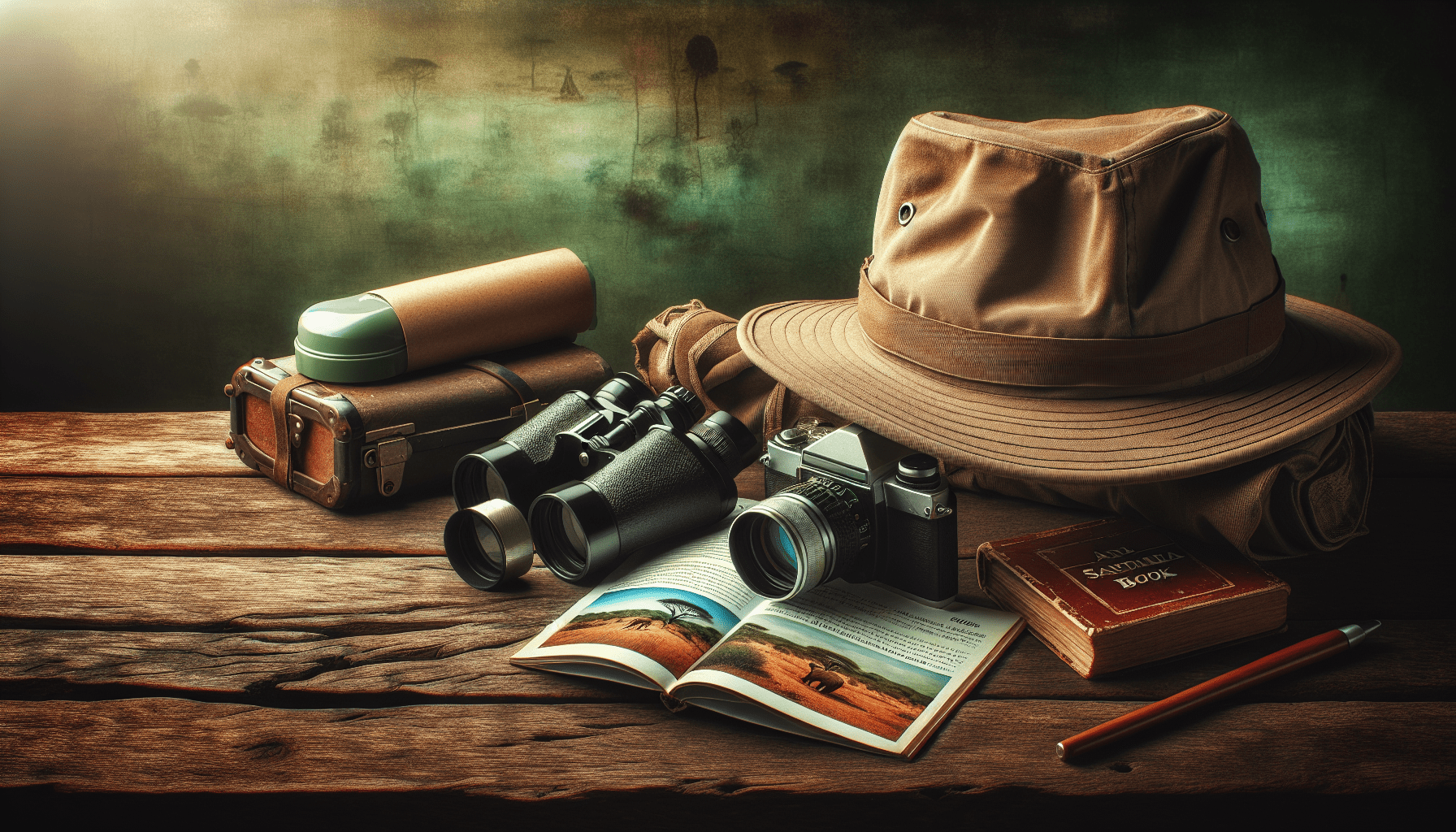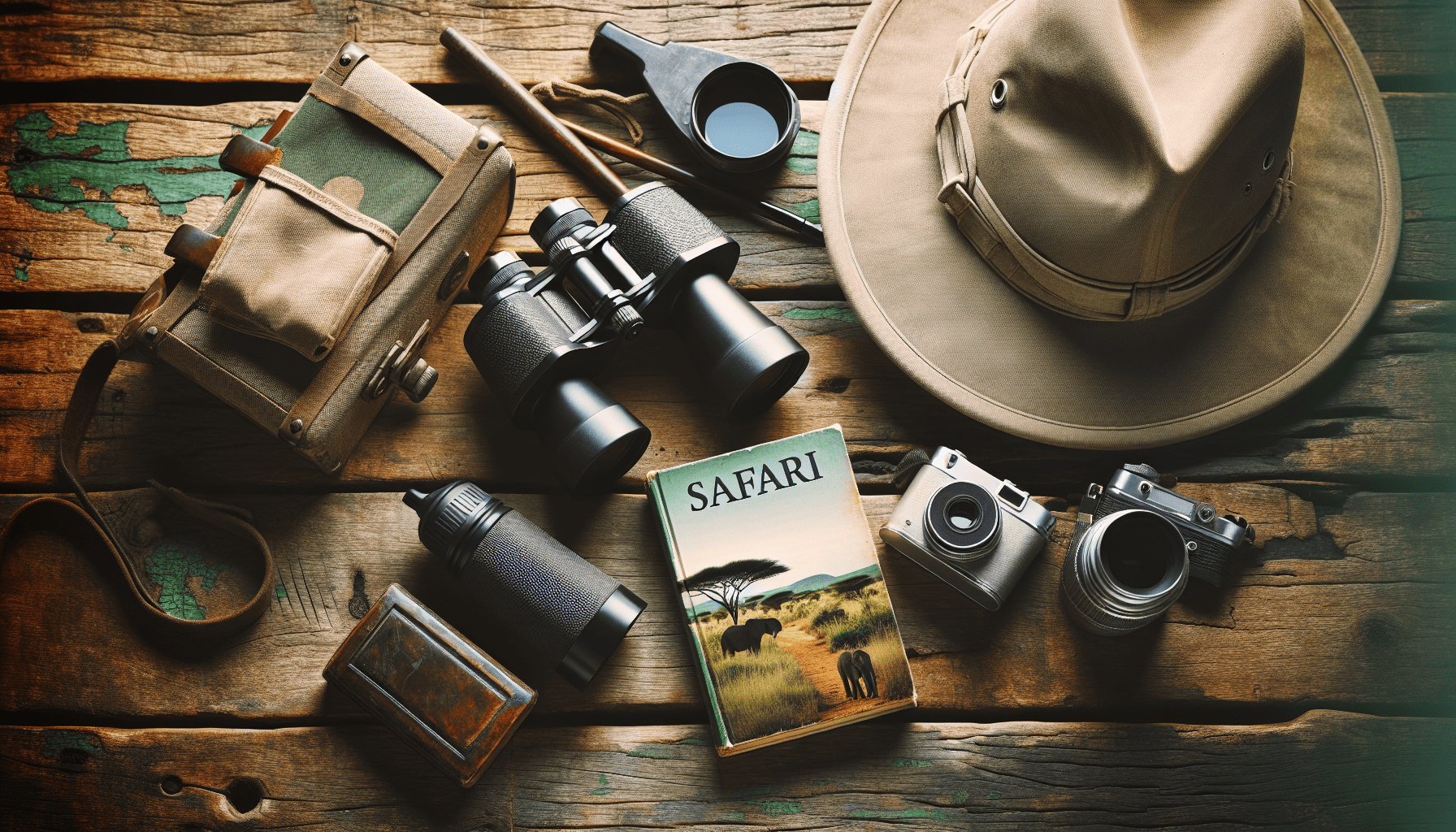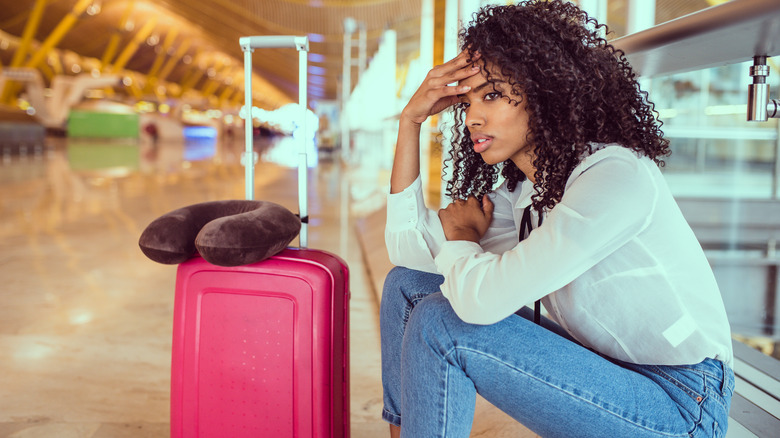TOPEAST Christmas Gifts - Preppy Makeup Bag, Stocking Stuffers for Girls Women | Personalized Initial Makeup Pouch | Leather Waterproof Cosmetic Bag | Christmas Birthday Gifts for Daughter (Letter A)
$15.99 (as of December 20, 2024 21:41 GMT +00:00 - More infoProduct prices and availability are accurate as of the date/time indicated and are subject to change. Any price and availability information displayed on [relevant Amazon Site(s), as applicable] at the time of purchase will apply to the purchase of this product.)Your first African safari is bound to be an adventure of a lifetime, blending exhilarating game drives with tranquil nights under the star-studded African sky. However, to make the most of this bucket-list trip, there are several unexpected tips you should know beforehand. Dressing in neutral colors can help you blend in with the surroundings and avoid attracting bugs, while also being prepared for chilly mornings despite the continent’s generally warm climate. The animals you’ll see will depend largely on your chosen destination, and accommodation options vary from luxurious lodges to rugged camping experiences. Additionally, bringing unique items like a water bottle with a built-in filter and a good camera to capture those unforgettable moments can make your journey more comfortable and memorable. So, pack wisely, plan ahead, and prepare to be amazed by the wonders of the African wilderness. Have you ever dreamed of going on an African safari? Imagining yourself exploring vast savannahs, witnessing astonishing wildlife, and soaking in the natural beauty of some of the world’s most stunning landscapes? If your answer is yes, then you’re not alone. An African safari is a bucket list adventure for countless people worldwide, offering a chance to see some of the world’s most iconic animals in their natural habitat. However, the dream can quickly turn into a logistical challenge if you’re not well-prepared.
Planning for your first African safari is no small feat. You may already know that you’ll need binoculars, visas, and a robust itinerary to maximize your experience, but there are many details you might not expect. Luckily, we’ve compiled this guide to equip you with all the tips and information you need for a smooth, enriching adventure. So let’s dive into the unexpected things tourists should know before their first African safari.

Shop These Accessories for a Comfortable Trip
Wear the Appropriate Attire
Avoid Bright Colors
If you’ve ever seen friends or acquaintances return from an African safari, you might have noticed their earth-toned attire. Trust us, this is not about making a fashion statement; it’s about practicality. Wearing bright colors can distract animals and even attract insects. For instance, bright and very dark colors (like blue and black) can draw tsetse flies. So stick to olive, beige, and other neutral colors to blend into your surroundings effectively.
The Weather Isn’t Always Hot
Contrary to popular belief, an African safari isn’t always a scorching hot adventure. Depending on the time of year and the specific country you visit, temperatures can drop significantly, especially at night. In sub-Saharan nations like Botswana and Zambia, for example, it can get freezing cold during nighttime drives. Layering is crucial. Bring lightweight clothing for daytime and warmer layers for early morning or evening excursions.
The Animals You See Will Depend on Where You Go
The Big Five and More
One of the primary goals for most safari-goers is to catch a glimpse of the Big Five: lions, elephants, leopards, rhinos, and buffalo. Your best bet for seeing all five is in parks like Chobe National Park in Botswana, Kruger National Park in South Africa, and Majete Wildlife Reserve in Malawi. Botswana is particularly notable for its elephant population, while Kruger National Park is more famous for its big cats.
Specialized Destinations
- Gorillas: You’ll need to venture into Uganda, Rwanda, or the Democratic Republic of the Congo to see gorillas. Prepare for steep permit fees; it’s $1,500 per person in Rwanda, $800 in Uganda, and $400 in the Congo.
- Hippos: Head to the Okavango Delta in Botswana, but know it’s accessible via Namibia as well.
Even with the right planning and picking optimal locations, remember that these animals are in their natural habitat, and there’s no guarantee of spotting them. Patience and a readiness to enjoy unexpected encounters will serve you well.
Shop These Accessories for a Comfortable Trip
Lodging Ranges from Camping to Luxury
Luxury Options
Think “wild” and “rugged” means no luxury? Think again. Africa offers a variety of luxurious lodges and glamping experiences. For example:
| Luxury Lodges | Location | Highlights |
|---|---|---|
| The Royal Livingstone Victoria Falls Zambia Hotel | Zambia | Offers stunning views of Victoria Falls |
| Four Seasons Safari Lodge | Serengeti | Located next to a watering hole, providing easy sightings of the Big Five |
Camping Adventures
If you’re more interested in a gritty, immersive experience, camping might be your style. Several tour companies offer extensive camping trips:
- G Adventures: Offers a 19-day camping tour from Kampala, Uganda, to Stone Town, Zanzibar.
- Exodus Adventure Travels: Takes you on a 20-day Victoria Falls to Cape Town journey.
- Intrepid Travel: Covers ten days across Kenya and Tanzania.
Bring Things You Wouldn’t Expect
Entertainment
African safaris often mean long days, starting early in the morning. Cell service and Wi-Fi can be limited in remote areas, so it’s wise to bring forms of entertainment that don’t require connectivity. Download podcasts, audiobooks, or bring along a physical book or a journal to chronicle your adventures.
Physical Comfort
You’ll hear a term often: “African massage,” a humorous nod to the bumpy ride on unpaved roads. These “massages” can take a toll, so consider bringing things to help soothe your muscles. A travel-sized massage gun (like the Hyperice Hypervolt Go 2) or compression socks can be lifesavers.
Hydration
Staying hydrated is crucial, especially under the beaming sun during long days. Bring a water bottle with a built-in filter. The GRAYL UltraPress Purifier is a good option. Remember, though, water filters aren’t foolproof, so follow basic purification practices like boiling water when necessary.

Your Camera Seriously Matters
Capture Stunning Photos
The phrase “Pics or it didn’t happen” holds especially true for a trip as momentous as an African safari. Your phone’s camera might not cut it. Animals are often far away, and cell phone zooms tend to create pixelated or gritty images.
Choosing the Right Camera
- Nikon D5000: A compact yet effective choice for traveling.
- Nikon Z5 Mirrorless Camera: Has a 24-200mm lens offering exceptional zoom, although it’s quite expensive.
If space is a concern, a DJI Osmo Pocket 3 or a GoPro Hero12 can also work, although they lack significant zoom capabilities.
Final Planning Details
Book Well in Advance
Safaris require meticulous planning, often up to a year in advance. This planning includes securing permits, lodging, transportation, and even vaccinations. As each African nation has specific requirements and attractions, knowing well in advance what you need will make your trip smoother.
Visas and Vaccinations
Research visa requirements and health regulations for each country you plan to visit. Most safari destinations require vaccinations, such as Yellow Fever, and taking malaria medication is often strongly recommended.
Sustainable and Ethical Practices
Choose tour operators committed to sustainable and ethical practices. Make sure that the companies you book with are respectful of wildlife and contribute to conservation efforts in the regions they operate.
Travel Insurance
Given the remote locations and adventurous nature of safaris, travel insurance is highly advised. Ensure your policy covers things like medical emergencies, trip cancellations, and any activities you plan on participating in, like gorilla trekking or deep-water river crossing.
Packing Essentials
Here’s a concise packing checklist for your African safari:
| Item | Reason |
|---|---|
| Lightweight and Layered Clothing | Varied temperatures |
| Neutral-Colored Attire | Blending in and avoiding insect attraction |
| Sturdy Hiking Boots | Comfort and protection during treks |
| Hat and Sunglasses | Sun protection |
| High SPF Sunscreen | Intense sun exposure |
| Binoculars | Enhance distant wildlife sightings |
| Camera with Good Zoom | Capture far-off wildlife without sacrificing photo quality |
| Water Bottle with Filter | Ensure clean hydration |
| First Aid Kit | Basic medical emergencies |
Conclusion
So there you have it—a comprehensive guide to the unexpected things tourists should know before their first African safari. Remember, the key to maximizing your safari experience lies in detailed planning, understanding what to expect, and preparing accordingly. Whether you’re aiming to see the Big Five, opting for luxury lodges, or gearing up for a rugged camping adventure, these tips will help ensure your journey is as fulfilling and comfortable as it is exciting.
Ready to embark on your dream African safari? Armed with this knowledge, you’re better prepared for what lies ahead. Enjoy your adventure and may your experiences be as vibrant and enriching as Africa itself!
Shop These Accessories for a Comfortable Trip






